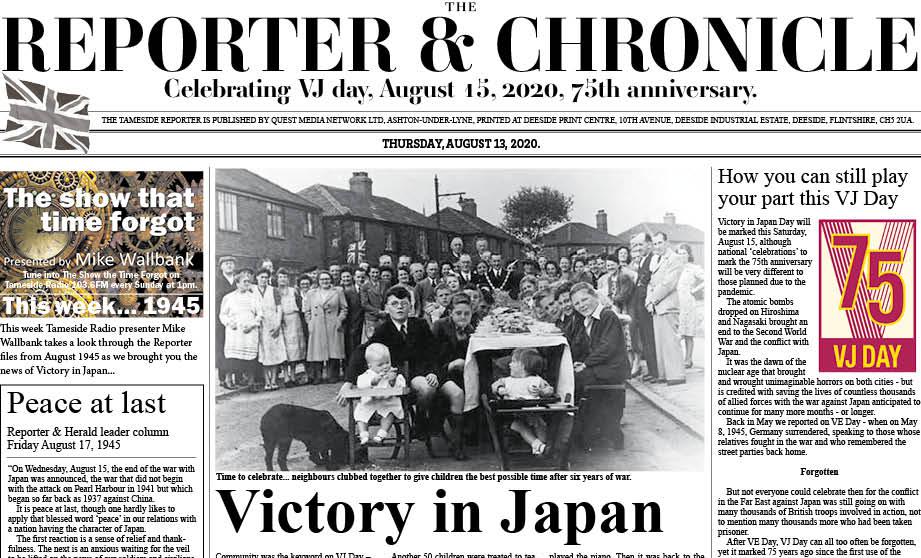
This week, Tameside Radio presenter Mike Wallbank takes a look through the Reporter files from August 1945 as we brought you the news of Victory in Japan...
Peace at last - Reporter & Herald leader column: Friday August 17, 1945
“On Wednesday, August 15, the end of the war with Japan was announced, the war that did not begin with the attack on Pearl Harbour in 1941 but which began so far back as 1937 against China.
It is peace at last, though one hardly likes to apply that blessed word ‘peace’ in our relations with a nation having the character of Japan.
The first reaction is a sense of relief and thankfulness. The next is an anxious waiting for the veil to be lifted on the news of our soldiers and civilians in Japanese prisons and detention camps and we can only hope for the best. Thus ends the ambition of an eastern nation that for 50 years has steadily furthered a policy of conquest and annexation, supported, one confesses with shame, by some of the western nations at times and also by some of the western financial interests.
The heroic nation of all these years has been China, herself beset with trouble putting up an equal fight against the Japanese.
Our future is mixed with anxieties. How can the fragments of a broken world be put together again? How best are we to prevent the spectre of starvation walking abroad this winter?
We shall have to work out a design for living together. That is the supreme challenge which peace makes to us.”
Street parties mark the very end of war
Grosvenor Road, Hyde, was festooned with neon lights for a fun-filled celebration on the Saturday following VJ Day.
About 180 adults and children seated at long trestle tables and enjoyed a knife and fork tea with jellies, blancmange, stewed fruit, sweets and ice cream.
Passing pedestrians were also made welcome - and as the North Cheshire Herald observed ‘everyone was in great spirits. Much fun was aroused with the dancing of the Okey Cokey...community singing and dancing was thoroughly enjoyed... Madame E Stanton (Mrs Pearson) gave three songs in excellent voice accompanied by Miss Susan Hyde... sports for the children were organised under the direction of Mr Ashworth, Mr Morrison, Mr Tomlinson, Mr Mather and Mr Taylor.’
Radiogram
As well as a good old fashioned sing around the piano, the report also mentions that some of the residents brought out a radiogram, which would have been ideal for keeping the party music flowing, but a precarious exercise considering the 10 inch shellac gramophone records of that era were so easy to break.
We can only imagine the more nervy neighbours keeping an anxious eye on the radiogram and their precious records, especially with so many youthful bundles of energy in close proximity.
The grown-ups could have switched on the radio to hear the BBC Light Programme - the brand new service which had only been on the air for a couple of weeks. Its main focus was light orchestral and organ music with popular shows including Keyboard Cavalcade, Record Album - ‘from swing to classics’ and Music While You Work.
A time for change after years of conflict
Clement Attlee (pictured below), who had served as deputy prime minister to Winston Churchill in the wartime coalition government, led Labour to a landslide victory in the General Election held in July 1945.
Two years earlier, he had visited Ashton setting out his vision for post-war Britain.
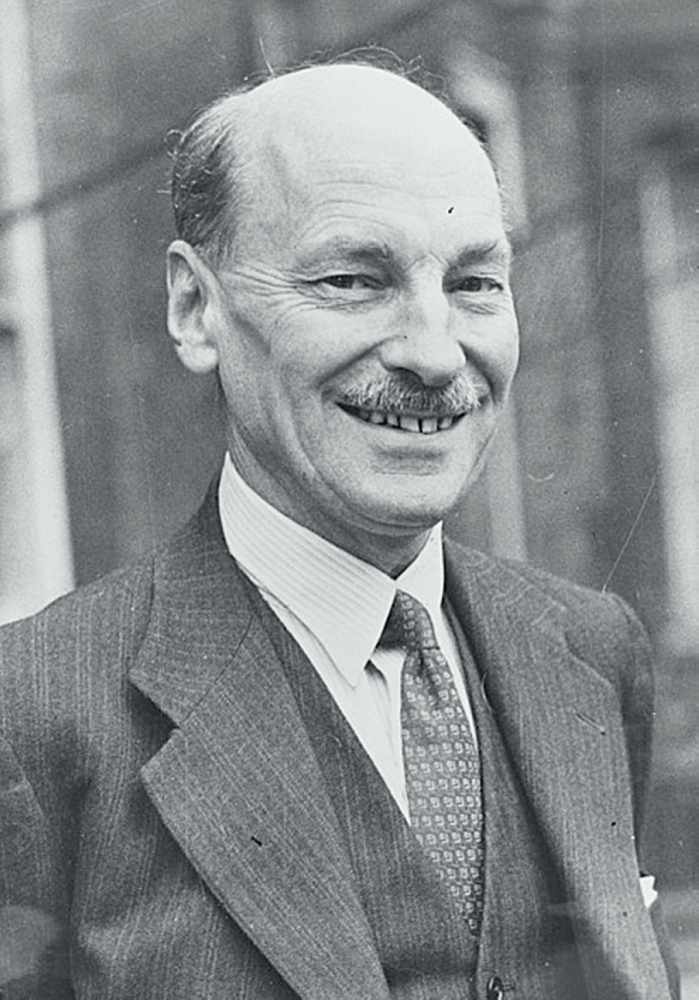
Addressing a Sunday afternoon meeting at the Pavilion Theatre, he said: “ I want a world designed not for the speculators but for the real producers of wealth...
“If we work together in the same spirit as we have shown in the war, I am certain this country can secure to its citizens the material basis of a good life.”
The election produced a major shock in the Mossley constituency - or ‘division’ as it was known, covering most of the Reporter area.
Austin Hopkinson, who had first been elected as a Coalition Liberal MP in 1918 and later stood as an Independent, finished bottom of the poll, losing not only his seat but also his deposit.
The Rev George Woods, the Labour Co-operative candidate won a near 9,000 majority with Captain G E Rush (Conservative) in second place and Miss Marjorie Jalland (Liberal) third.
Labour also took Stalybridge and Hyde from the Conservatives, winning by a 4,300 margin. The new MP the Rev Gordon Lang had lost by just 334 votes in a 1937 by-election to Horace Trevor-Cox, the man he eventually replaced eight years later.


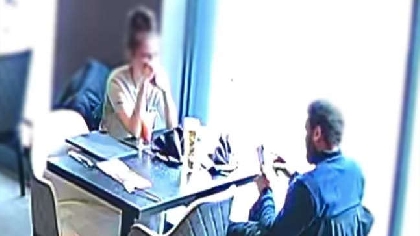 Ashton restaurant threatens to expose dine and dashers after they scarper leaving £159 bill for food and cocktails
Ashton restaurant threatens to expose dine and dashers after they scarper leaving £159 bill for food and cocktails
 Sound of music at The Vale as venue announces new gigs
Sound of music at The Vale as venue announces new gigs
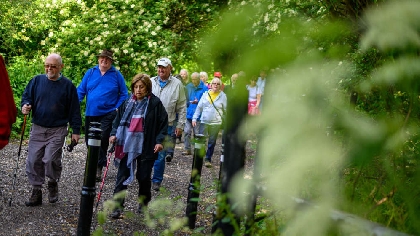 Mooch and natter in Mossley this May with the 2024 GM Walking Festival
Mooch and natter in Mossley this May with the 2024 GM Walking Festival
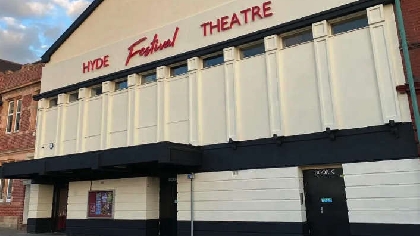 Hyde theatre receives £20K funding boost from the People's Postcode Lottery
Hyde theatre receives £20K funding boost from the People's Postcode Lottery



